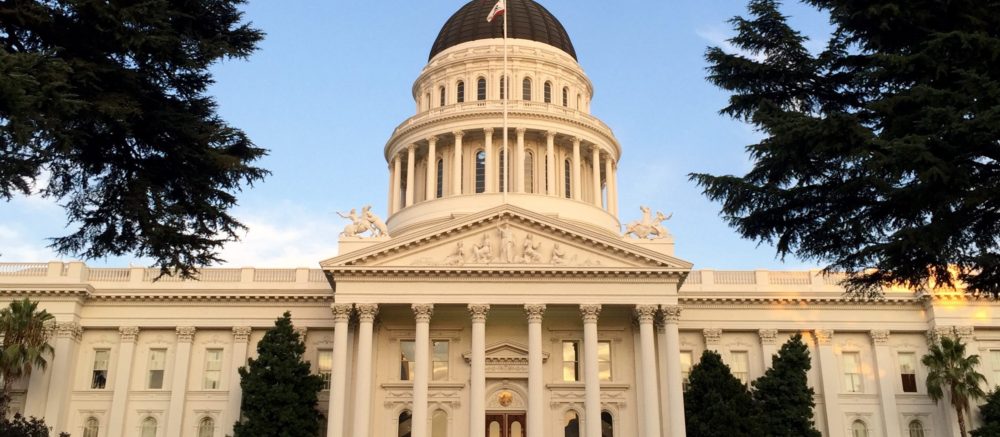
The final weeks of September always bring a flurry of legislative activity in Sacramento, and this year we are proud to report that three key water policies were signed into law before the September 30 deadline. As always, California Coastkeeper Alliance was heavily involved in shaping legislative priorities, championing critical bills to safeguard our water and make California more resilient to a changing climate. Here is a closer look at progress in 2016 on ocean acidification, water recycling, and stormwater reuse.
CCKA scored two major victories when Governor Brown signed a pair of bills from legislative water champion, Assemblymember Richard Gordon (D-Menlo Park). The passage of Assembly Bill 2022 will allow purified recycled water to be bottled and sampled for educational and outreach purposes. Existing law prevented communities and decision-makers from sampling recycled water, a key step to build comfort and familiarity with this local, drought-proof source of water. With the signature of this new law, CCKA hopes that more people will taste purified recycled water and ultimately invest in water recycling, a safe and much less expensive option than importing water or ocean desalination. Governor Brown also signed Assembly Bill 2594, which sets an important foundation for local stormwater capture. AB 2594 recognizes the value of stormwater and provides a financial incentive for local use by affirming that local agencies that capture stormwater in urban areas can use it for groundwater recharge, reuse, water quality improvement or sale. Promoting stormwater capture is essential in a future with climate change characterized by hydrologic extremes and more uncertainty in weather patterns. Stormwater capture is a valuable water source, and like potable recycled water, it is cheaper and less energy-intensive than other options.
Governor Brown also signed into law Assembly Bill 2139 (Williams, D-Carpinteria), ensuring that the state is using the best available science to address ocean acidification and hypoxia, two major threats to California’s ocean economy. Ocean acidification is the process by which seawater becomes more acidic as our oceans absorb atmospheric CO2, which hinders shellfish and corals from building their skeletons. Hypoxia, often a product of rising temperatures and nutrient pollution, refers to levels of dissolved oxygen that are dangerously low for most sea life. Both of these processes are having cascading impacts on the entire marine ecosystem and oyster growers, as well as other industries dependent on a healthy ocean. Under AB 2139, the Ocean Protection Council will establish a science task force to ensure decision-making is informed by the best available science, identify areas vulnerable to ocean acidification and hypoxia, and develop water quality standards to protect coastal water health. A complimentary ocean acidification bill signed into law this session will protect and restore eelgrass habitats to increase carbon sequestration.
One disappointment was the Governor’s veto of Senate Bill 900 (Jackson, D-Santa Barbara), which would have helped the State Lands Commission address legacy oil and gas wells and other coastal hazards that present a threat to public health, safety and the environment. In his veto message, Governor Brown announced his commitment to developing a thorough inventory of all coastal hazards and their impacts. CCKA will work with local Waterkeepers to ensure this commitment translates into meaningful progress.
CCKA and the California Waterkeepers look forward to leveraging the impact of these new laws in our ongoing work for swimmable, fishable, drinkable waters for all California ecosystems and communities.

Policy Analyst Leah Campbell builds multi-stakeholder partnerships to develop sustainable water policy.



